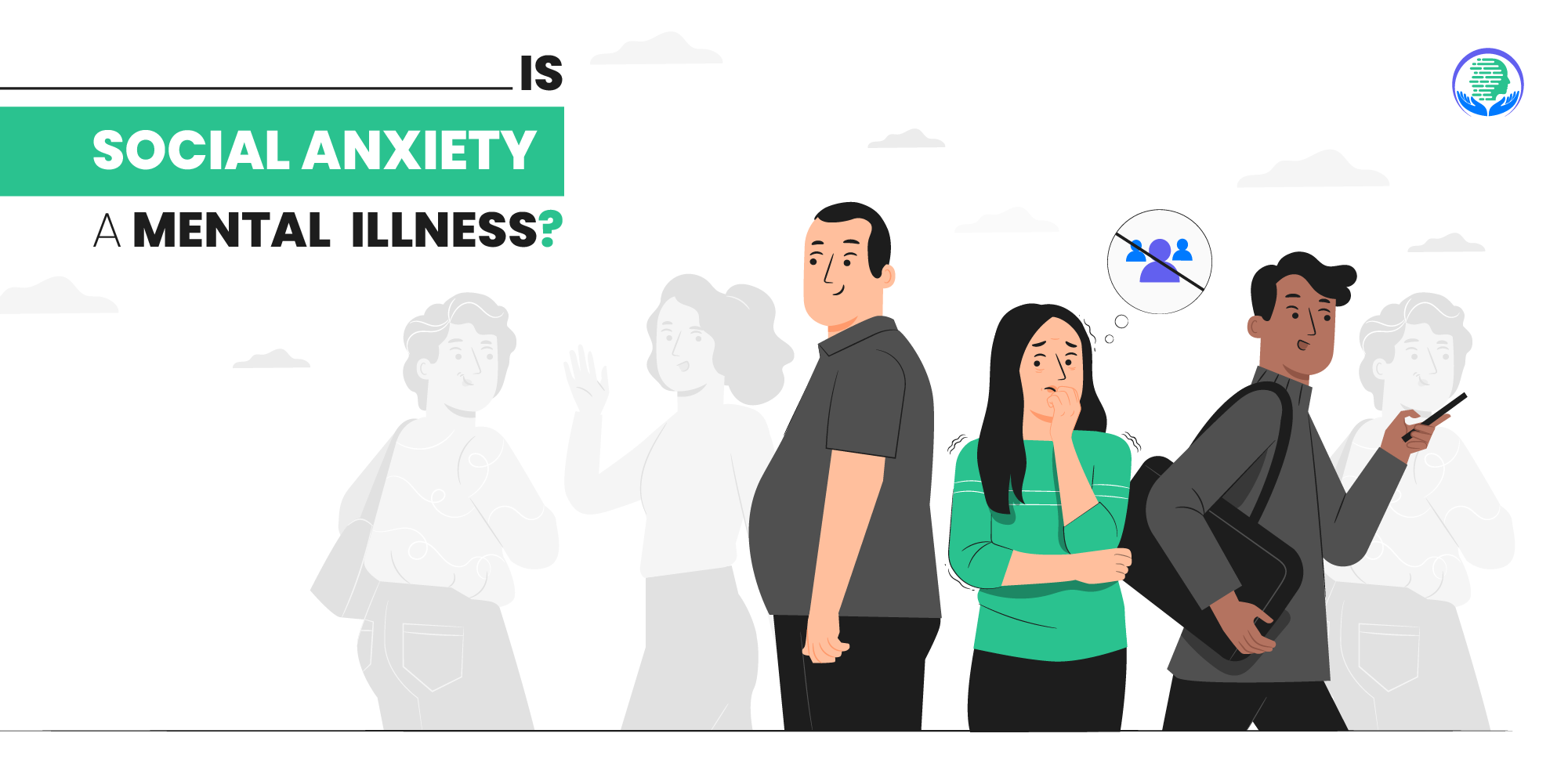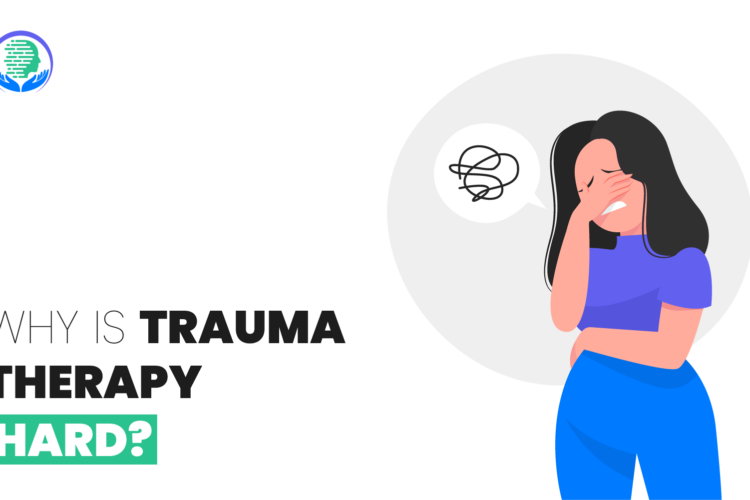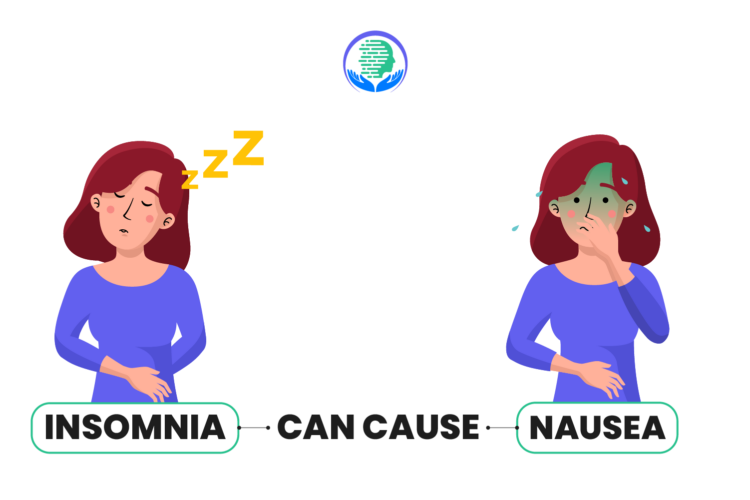
Many people feel extremely anxious around others and in social situations — this is called social anxiety. It affects 15 million adults in the US.
These frightened feelings often start when you are a teen — between ages 11-19 years old.
You often ask, is social anxiety a mental illness? Let’s discuss all about it.
If you have social anxiety, help is available.
For assistance in recovering from social anxiety, please contact us at Zion Healthcare Services.
What Is Social Anxiety Disorder?
Social Anxiety Disorder, also known as social phobia, is a mental health disorder that causes a considerable amount of fear in one or more social situations.
It causes avoidance of social interactions and causes considerable difficulties in areas like work, school, and personal relationships.
Some common situations that cause anxiety include:
- Meeting new people.
- Speaking in front of others.
- Being the center of attention.
- Going to parties or social events.
People with social anxiety disorder worry a lot about doing or saying something that might embarrass them or cause others to think badly of them.
Therefore, social anxiety symptoms aren’t just about being shy. There is a great deal of fear and anxiety that gets in the way of daily life.
There are treatments like therapy and medication that can help reduce social anxiety.
Thus, you can contact us for support and more information.
Social Anxiety Symptoms
Symptoms of social anxiety disorder include:
- Fear of embarrassment or humiliation in social situations.
- Concern about doing or saying something that will cause judgment or rejection from others.
- Worrying a lot about what other people think.
- Blushing or sweating when talking to people.
- Trembling or difficulty speaking clearly in front of others.
- Stomach aches, nausea, or diarrhea due to anxiety in social settings.
- Avoiding activities like going to parties, speaking in meetings, or eating in public.
- Wanting to flee social situations due to intense anxiety and panic.
- Difficulty making eye contact with other people.
Related: Overcoming Social Anxiety
Causes of Social Anxiety
You might search for what causes social anxiety.
There are a lot of factors that cause social anxiety.
These aspects and potential causes of social anxiety include the following aspects:
- Social anxiety runs in families and might be genetically influenced.
- Differences in neurotransmitter levels like serotonin can impact anxiety levels.
- Trauma, bullying, rejection, or embarrassment during childhood can influence social fears.
- People may learn to associate social situations with the potential for harm or humiliation.
- Shy, sensitive temperaments may be more prone to social anxiety depending on environmental factors.
- Constantly criticizing oneself and worrying about others’ judgments exacerbates anxiety.
- Avoiding social situations due to anxiety can prevent learning that socializing is usually safe.
Is Social Anxiety a Mental Illness?
Yes, it is indeed considered a mental illness.
Social anxiety disorder is officially classified as a mental disorder in the Diagnostic and Statistical Manual of Mental Disorders, Fifth Edition (DSM-5).
It is the standard classification of mental disorders used by mental health professionals in the U.S.
How to Overcome Social Anxiety?
Getting rid of social anxiety disorder is possible if you struggle with it.
Most often you think about how to stop social anxiety.
- Seek support from friends and a therapist to increase your confidence.
- Practice relaxation techniques and positive self-talk to calm nerves.
- Medications prescribed by a doctor can ease symptoms too.
- Make an effort every day to challenge anxious thoughts and be kind to yourself.
To get more information on the best treatment available, you may visit Zion Healthcare Service at 1108 W Pioneer Pkwy, Suite 100 Arlington, TX, 76013.
Social Anxiety Treatment Options
Can social anxiety be cured? Although ‘cure’ might not be the right term, social anxiety is certainly a condition that can be managed and treated effectively with the right strategies.
Treatment options such as CBT and medication can reduce symptoms for many people over time.
Medications
Medications used to treat social anxiety include:
- SSRIs (Selective Serotonin Reuptake Inhibitors.
- SNRIs (Serotonin-Norepinephrine Reuptake Inhibitors).
- Benzodiazepines.
- Anticonvulsants.
- Beta-blockers.
Medications work best combined with CBT.
It can take 4-8 weeks to feel the full effects, and the prescription should be closely monitored by a doctor.
Cognitive Behavioral Therapy
- CBT helps recognize and challenge negative thought patterns that sometimes trigger social anxiety. This facilitates a shift to more balanced and rational thinking.
- Through various activities, patients learn practical coping skills to manage anxiety symptoms in real-world situations.
- CBT often includes exposure therapy, in which people gradually face feared social situations in a controlled way. This can reduce avoidance behaviors over time.
- By addressing and altering the core beliefs about oneself, CBT can increase self-esteem and self-efficacy, which are crucial in overcoming social anxiety.
Relaxation Techniques
Is social anxiety a mental illness? Yes, it is a mental disorder that needs treatment to get better.
Relaxation counters “fight or flight” and allows the socially anxious to unwind without using addictive substances.
It encourages self-soothing and reduces avoidant coping. These techniques are:
- Taking deep breaths to oxygenate the body and slow heart rate during anxious moments.
- Tensing and releasing different muscle groups to release physical tension and storing anxiety.
- Visualizing a calm scenic space while breathing deeply to detach from anxious thoughts.
- Gentle poses and stretches to relax the body and focus on physical sensations.
- Sitting quietly while focusing on breathing to calm the mind and embrace present-moment experiences non-judgmentally.
- Using devices to monitor muscle tension and heart rate to better control involuntary responses to anxiety.
- Grounding yourself in green spaces to alleviate stress response in the nervous system.
Wrapping Up
Is social anxiety a mental illness? Yes, social anxiety disorder is classified as a mental illness.
Persistent intense anxieties and panic in social situations, along with avoidance behaviors, are prominent symptoms.
Left untreated, social anxiety may worsen over time and co-occur with depression.
Effective treatments are available to manage symptoms and regain quality of life.
If you need better treatment for social anxiety, please reach out to Zion Healthcare Services.
FAQs
Does social anxiety count as a mental illness?
Yes, social anxiety disorder is officially designated as a mental illness when fears surpass reasonable levels and notably impair one’s ability to work, study, and socialize normally.
Can social anxiety be cured?
While social anxiety cannot always be permanently cured, treatments like CBT and medication can help.
They greatly reduce symptoms for many, allowing them to manage their condition and live normal, fulfilling lives.
Is social anxiety lifelong?
Social anxiety itself may persist to some degree, but successful long-term management is possible through continued therapy and self-care.
For some, symptoms can lessen substantially or even disappear over time.
Does social anxiety get worse with age?
Untreated social anxiety may persist, but it does not necessarily worsen with age.
Early intervention leads to better long-term outcomes regardless of life stage.


